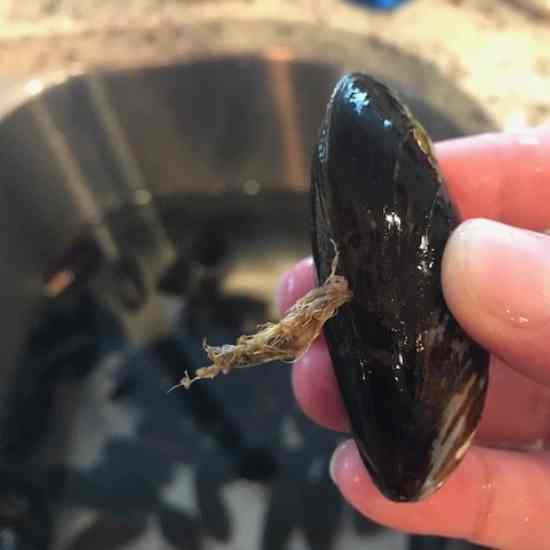Effective Ways to Improve How Long to Marinate Steak in 2025

Effective Ways to Improve How Long to Marinate Steak
Marinating steak is more than just a culinary practice; it's an art that enhances flavor, tenderness, and overall enjoyment. As grilling season approaches in 2025, mastering the ideal marination time can make a significant difference in your cooking. But how long should you marinate steak? Understanding the perfect soaking times can elevate your meals, making them flavorful and juicy. In this article, we will explore various marinating techniques, ideal soak times, and the benefits of marinating for flavor.
By learning how to marinate steak effectively, you can ensure that each cut is treated to the best possible flavor profile. This guide will cover everything from quick marination ideas to the specific properties that different marinades can impart. You'll also discover common marinating mistakes and how to avoid them, ensuring that every steak you prepare will reach its full potential. So, let's dive deeper into the world of steak marination!
Understanding Marinate Steak Duration
When it comes to marinating steak, the question of duration is crucial. The effectiveness of marination often depends on the type and cut of meat, as well as the ingredients used in the marinade. For example, tougher cuts like flank and skirt steaks benefit from longer marination times, typically between 6 to 24 hours, allowing the flavors to penetrate deeply and improve tenderness.
Factors Influencing Marinating Time
Several factors can influence how long you should marinate steak. Firstly, the cut of the steak plays a significant role. Cuts rich in connective tissue, such as sirloin and flank, often require longer marinating periods. Conversely, more tender cuts like ribeye might only need a few hours. Secondly, the ingredients in your marinade, especially acidic components like vinegar or citrus juice, can affect the length of time required for marination. High acidity can break down meat fibers too much if left too long, leading to a mushy texture.
Ideal Marinade Time for Different Cuts
Understanding the best marination times for various cuts can make a significant impact on flavor and tenderness. For instance, how long to marinate ribeye effectively is crucial for optimum taste. Ribeye can be marinated for about 1 to 4 hours, ensuring it absorbs enough flavor without compromising its natural tenderness. In contrast, tougher cuts such as flank steak should be marinated for roughly 6 to 24 hours, allowing ample time for the flavors to penetrate and tenderize the meat.
Marinade Soak Time Recommendations
As a general guideline, here’s a quick reference for how long to marinate steak based on its cut:
- Flank Steak: 6 to 24 hours
- Sirloin Steak: 4 to 12 hours
- Ribeye Steak: 1 to 4 hours
- Filet Mignon: 1 to 2 hours
These times can vary based on the acidity of your marinade and the flavor intensity desired.
Best Steak Marinade Ingredients
[Building on our exploration so far, let’s shift focus to the best marinade ingredients that can enhance steak flavor and tenderness.]
Choosing the right ingredients for your steak marinade is essential to crafting the perfect flavor profile. Common components often include oils, acids, and various seasonings. A classic marinade might combine soy sauce, olive oil, garlic, and herbs for a well-rounded taste experience. The *best steak marinade* usually balances acidity with oil to help tenderize and flavor the meat.
Incorporating Acids
Acidic ingredients are vital for breaking down the tough fibers in meat, enhancing flavor absorption. Vinegar, lemon juice, and wine are great options for creating an acidic base in your marinade. However, moderation is key. Excessive acidity can lead to an overly mushy texture, so it's important to stick to recommended marinating times based on the cut of meat you're using.
Adding Flavor with Spices
Besides acids, spices and herbs can also greatly impact the taste of your marinated steak. Consider using dried spices like paprika, cumin, and black pepper alongside fresh herbs like rosemary and thyme for more complex flavor profiles. A great marinade includes a mix of salt, which enhances overall flavor, alongside sweet notes from honey or brown sugar to balance out acidity.
Experimenting with Marinade Ideas
If you’re unsure of where to start, there are myriad *marinade ideas* available for creating tasty combinations. From a spicy steak marinade that adds heat to a sweet marinade featuring soy sauce and brown sugar, the possibilities are endless. Experimenting can lead to discovering your ideal flavor blend.
Texture and Tenderness: How Marinating Affects Steak
[With a firm grasp of marinade ingredients, let’s delve into how marinating affects the texture and tenderness of steak.]
Marinating is not just about flavor; it also plays a pivotal role in transforming the texture of your steak. When done correctly, marination can significantly improve the tenderness of tougher cuts. The process of marinating allows enzymes and acids to break down muscle fibers, leading to a mouth-watering, juicy final product.
The Science Behind Marination
Understanding how marinating works on a molecular level can help cooks make informed decisions about their marination techniques. Acidic marinades, for example, denature the proteins in meat, altering their structure and making them more receptive to flavor. This process is what results in that coveted juicy bite of perfectly marinated steak.
Common Mistakes in Marinating
One common pitfall is misjudging the marinating time. Be cautious of marinating too long, especially with acidic marinades, as this can lead to overly tender or mushy meat. Additionally, not refrigerating during the marination process can lead to foodborne illness, so it's essential to keep marinating steak in the fridge for safety.
Ensuring Optimal Cooking Results
Once marinated, cooking your steak correctly is equally important. For marinated steak, whether grilling or broiling, a light sear is ideal to lock in flavors while ensuring sufficient cooking throughout. Use a thermometer to check doneness, and always let the steak rest after cooking for best results.

Marinating Techniques for Flavor Enhancement
[Transitioning from marination basics, let’s look at specific techniques that enhance flavor and give your steak that restaurant-quality touch.]
The method you choose for marinating can significantly impact the absorption of flavors and tenderness of the beef. For instance, a vacuum sealing technique can maximize flavor infusion by reducing air pockets, allowing the marinade to penetrate deeper into the meat. Here are some of the most effective marinating techniques:
Vacuum Packing Your Steak
Vacuum packing is a popular method among chefs, effectively marinating steak within minutes rather than hours. This technique involves sealing the steak in a bag, pushing out as much air as possible, and then placing it in the marinade. The absence of air allows the steak to absorb flavors much quicker and deeply, often in as little as 30 minutes.
Brining as a Flavored Marinade Alternative
For an added layer of moisture, consider dry brining or using a wet brine with flavors. Brine helps to lock in moisture and can be tailored with herbs and spices to enhance flavors. This method not only adds seasoning but can also help achieve that elusive juicy texture.
Marinated Steak in a Skillet or Jar
If you’re limited on time or equipment, consider marinating steak in a skillet or a jar. Simply place your steak in a sealable bag or use a large jar, layering your marinade over the top. This method allows for an easy combination of steak and marinade, with the ability to control the marinate time intuitively. At each step, you can check for flavor intensity and adjust accordingly.

Q&A: Common Questions About Steak Marination
In this section, we will address some of the most common queries regarding how to marinate steak, providing practical solutions and expert recommendations.
How Long Should You Marinate Steak?
The ideal marinating time depends on the cut and marinade composition. As a rule, tender cuts like filet mignon should only be marinated for 1 to 2 hours, while tougher cuts like flank steak benefit from longer marinating times of 6 to 24 hours.
Do You Rinse Steak After Marinating?
It’s generally unnecessary to rinse steak after marinating. However, if using a heavy marinade with a high salt content, a gentle rinse under cold water can be beneficial. Pat dry with a paper towel before cooking to ensure a nice sear.
What Happens If You Marinate Steak Too Long?
Marinating steak for too long, especially with an acidic marinade, can lead to a mushy texture as the proteins break down excessively. It's important to adhere to recommended marination times for optimal results.
Can You Freeze Marinated Steak?
Yes, you can freeze marinated steak! This not only saves time but allows you to infuse flavors while the meat thaws. Ensure that the marinade is in a freezer-safe container to maintain quality.
How Does Marination Affect Cooking Time?
Marination can actually reduce cooking time due to the tenderization and seasoning of the meat. However, always confirm doneness with a meat thermometer for safe consumption.
By understanding the intricacies of marinating steak, from duration to ingredient selection, you can guarantee a flavorful and tender steak every time. Happy cooking!
Don’t forget to check out some unique steak marinade recipes online that can further enhance your experience and skill in the kitchen!